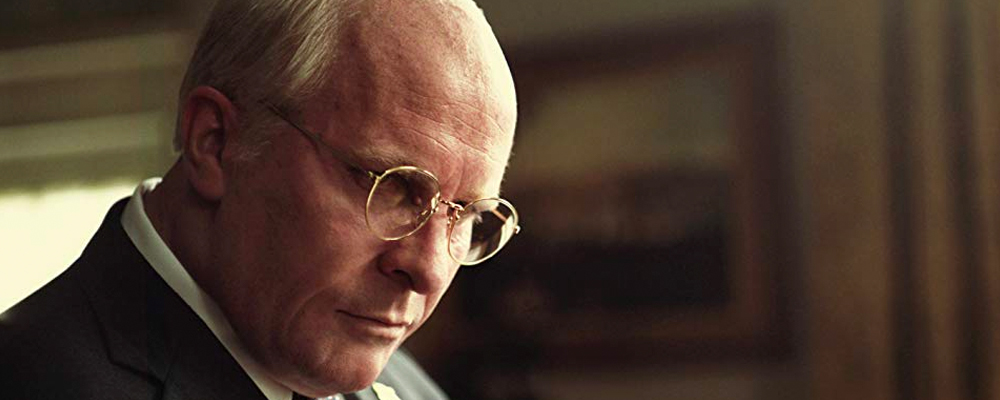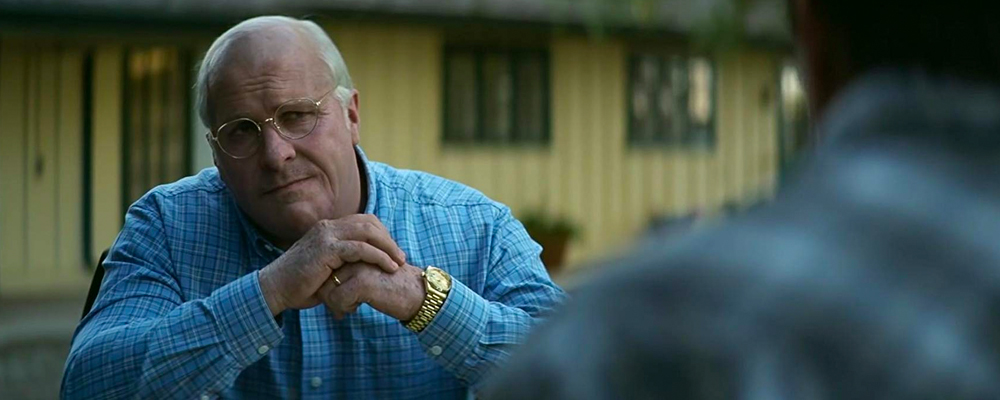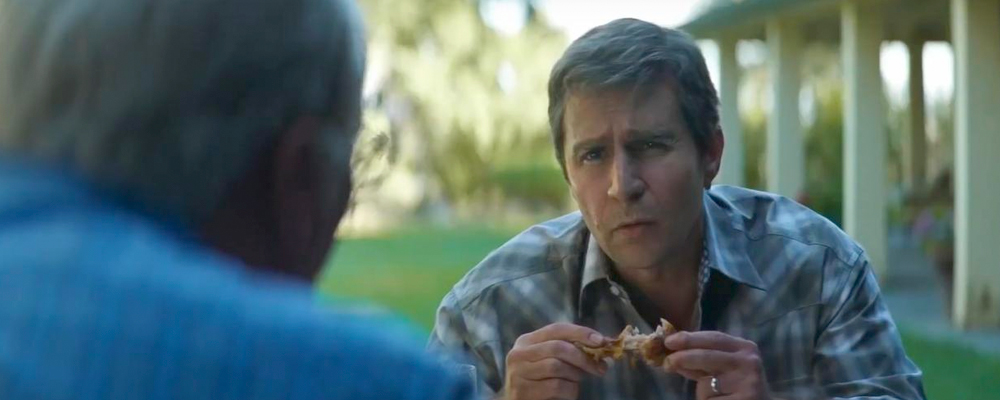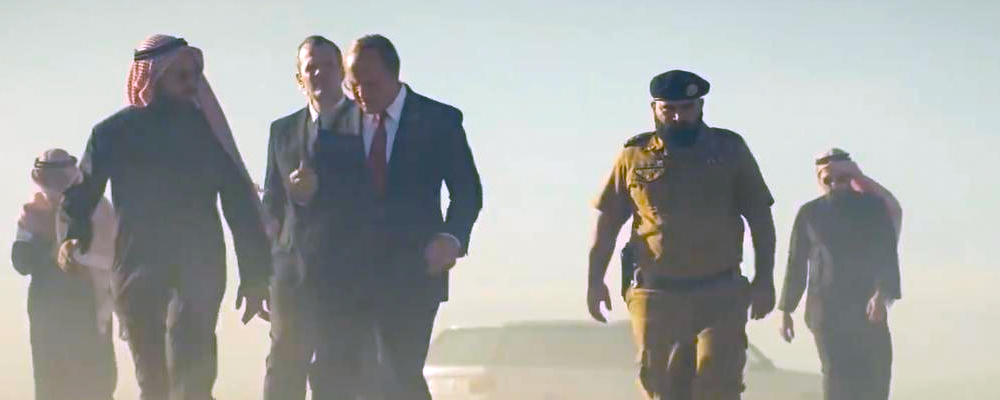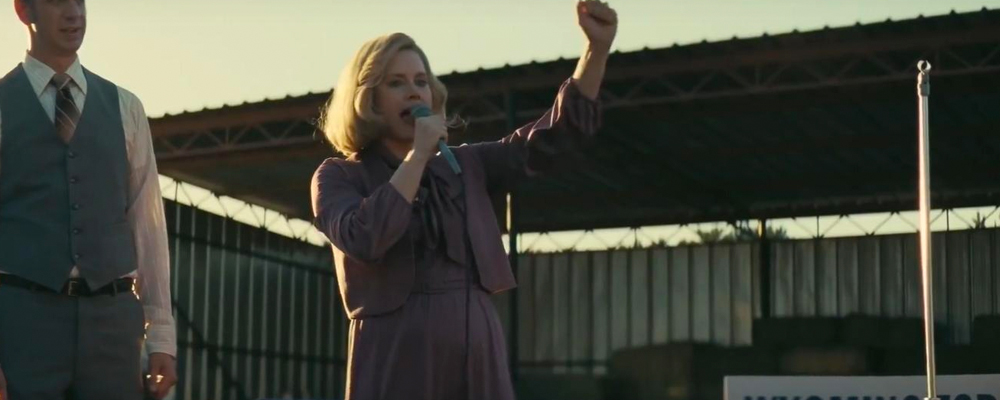Christian Bale Channels Power Hungry Dick Cheney in Adam McKay’s Brilliant ‘Vice’
Alci Rengifo
Dick Cheney’s shadow looms large over the last 40 years of American history in “Vice.” This sprawling, hilarious yet serious epic by Adam McKay makes the case for how the course of great events can be shaped by individuals, not all driven by virtuous goals. It is both a biography and a study of power, a satire that is also a deep reflection on how our system of government actually works. It is not enough to say that Christian Bale looks uncannily like the notorious vice president. He is channeling a personality in evolution, shifting from being an upstart to a ruthless power player.
In an opening title card McKay warns us that while the film is based on real life, Cheney is one of the most secretive of public officials, and so the filmmakers have tried their best in telling this tale. And what a tale it is. In his early years Cheney (Bale) is a hard-drinking Wyoming brawler, content with working on power line crews. His college-educated wife Lynne (Amy Adams) won’t have any of it, and warns Cheney that either he changes his ways or she can easily change husbands. Cheney decides to get involved in politics and is soon in 1970s Washington, D.C. working for Donald Rumsfeld (Steve Carell) during the tail end of the Nixon administration. It is Cheney’s first taste of the cutthroat world of government, where ideals are tossed aside for rising in the ranks. He quickly develops a fascination for how power works within the American system, probing into just how far the executive branch can go. As Nixon resigns, Ford takes over and then Jimmy Carter ushers in a Democratic era, Cheney lays low and focuses on making money in the corporate world, becoming CEO of Halliburton until the Reagan 80s call him back. Then in 2000, George W. Bush (Sam Rockwell) runs for president and begs Cheney to be his running mate. Victory assured, now firmly set in the Oval Office, Cheney prepares for his stealthiest, yet most destructive moment in the annals of history.
With “Vice” McKay has crafted one of the best recent political films. Like Oliver Stone (who made the first Bush era biopic with 2008’s underrated “W.”) or Spike Lee, he knows how to use cinema as an art form to convey urgent ideas and chisel fascinating characters out of real personalities. As envisioned by McKay, Dick Cheney is one of the seminal recent American politicians, responsible for setting much of the course that has brought us to where we are now. In 2015 the director’s “The Big Short” somehow managed to find sense in the numbers and data surrounding the 2008 economic crisis, turning it into riveting material. Now McKay is trying to make sense of the American nation state not just since 9/11, but before, going back to how the Nixon years shaped men like Cheney. McKay’s screenplay is merciless in its portrayal of the political world, with moments worthy of Gore Vidal. A young Cheney asks Donald Rumsfeld what they should believe in and Rumsfeld responds with a mad cackle. They both try to sneak a peek as Nixon and Henry Kissinger huddle to plan the bombing of Cambodia. We then cut to a Cambodian village in Cheney’s mind’s eye, to show exactly what an aerial assault will do to unsuspecting civilians. This image will repeat itself later when Cheney is Vice President, but with Iraqis. In this film there is no romanticized idealism behind going to war, it is instead the old game of the powerful imposing themselves on the world.
There is no subtly when it comes to McKay’s stances regarding his subject. He is obviously not an admirer of Cheney and the whole Bush era, seeing it as a harbinger for worst to come. But like Oliver Stone’s “Nixon,” this is not a mere screed but an attempt at profiling what we know about an important life, elevating it to Shakespearean proportions. Amy Adams’s fiercely focused Lynne is portrayed as responsible for making the drunkard dust himself off and go to Washington. He quickly identifies as Republican not because he has actual conservative values, but because he loves the way Rumsfeld basks in wielding authority. The student becomes the teacher and soon Rumsfeld will be working for Cheney in the most notorious administration of the century before Trump. Whether in running an office or a company, Cheney becomes enamored by how power works, he never obsesses too much over money as a goal, but over power as a tool. Driven by insecurities brushed away by the adrenaline of political influence, when Cheney is offered the VP slot by Bush, he seems to pretend to not want it, but deep down he knows he will say yes. His rise is narrated by Kurt (Jesse Plemons), who represents facets of American life, first as a suburbanite with kids, then as a soldier marching through Iraq. Kurt is the average citizen living under the cloud of what the Cheneys of the world wrought.
McKay’s visual technique is brilliant in its combination of satire and energy. Never does the film feel too long or confusing. McKay uses still photos of storms, stock footage of predators and current events to connect Cheney to the idea of history as a series of storms that can erupt at any moment. Comedy is brilliantly used too, especially in a brilliant mid-movie end credits sequence that won’t fool anyone, but is one of the year’s great cinema howlers. There is a darkly humorous edge used to convey just how pompous and dangerously absurd politics can become. Bush as played by Sam Rockwell is a barbecue-munching frat boy turned political tool, becoming more of a shell as Cheney obviously transforms into the brain of the administration. Tyler Perry plays a clueless Secretary of State Colin Powell, suckered into making the case at the U.N. for the Iraq invasion, a disaster which would destabilize the Middle East to this day. Justin Kirk plays Cheney’s adviser but more is more of a minion, while Steve Carrell’s Rumsfeld is always a sneaky rat, boasting that he’s like bed bugs, you need to burn the mattress to get rid of him. One moment of brilliant satire comes when Cheney and his gang sit around a restaurant, their options for corruption offered on a menu. This is a man who accidentally shoots a friend while hunting and drinking, but it is the victim who apologizes on TV. When the Iraq war becomes a disaster a reporter tells Cheney that most Americans think the conflict is going bad, he simply answers, “so?”
Towering over it all is Christian Bale in one of his and the year’s best performances. He evolves onscreen from a green staffer to the white-haired powerhouse many of us remember from those fateful, post-9/11 years. He walks the halls like a Caesar and snarls at senators who approach him with pathetic apologies in Congress. He munches on sweets while his staff details the rendition of a wanted Muslim cleric (McKay then shows us the brutal truth of how a rendition operation works). Yet there is a heart in the beast, and one of the script’s interesting angles is how his daughter Mary (Alison Pill) comes out as gay and while Lynne seems shaken, Cheney immediately embraces and accepts her. She will be the only red line he won’t allow his Republican allies to cross. Bale, under the makeup and added weight, brings out a mixture of intimidating, Machiavellian thinking and also pathos. For even emperors are but human. Of course many humans suffered as well under Cheney’s watch and McKay inserts shots of the torture at Abu Ghraib to remind viewers about what Iraq became. Nicholas Britell’s score is imperial and melancholy, capturing the scope of this saga.
Maybe because of the uncertain feeling in the air political cinema is again finding a fire in the belly. This year movies like “The Death of Stalin” and “BlackKklansman” have discarded timidity for urgent, radical takes on the nature of politics and society, but with a cinematic verve. “Vice” is one of the best. It makes Dick Cheney fascinating and revelatory, while telling a darkly funny story of how power operates. This would be a great film even if there had never been a real Dick Cheney, but he is real and McKay feels we are still picking up the pieces from his mess.
“Vice” opens Dec. 25 in theaters nationwide.

